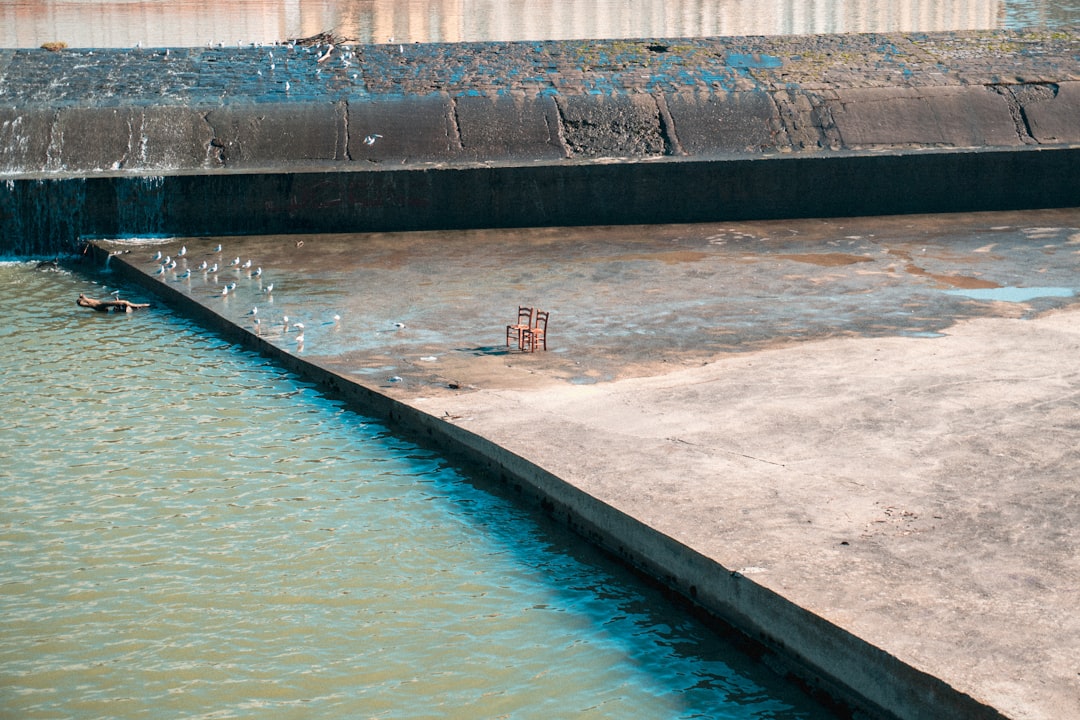The water industry is a critical sector that plays a vital role in sustaining life, supporting agriculture, and driving economic growth. As the demand for clean and accessible water continues to rise, the complexities surrounding water management and distribution have become increasingly pronounced. In this context, lobbying has emerged as a significant force in shaping water policies at local, national, and international levels.
Water industry lobbying involves various stakeholders advocating for specific interests, regulations, and funding related to water resources. This dynamic interplay between advocacy and policy-making is essential for understanding how water management systems evolve and adapt to changing societal needs. Lobbying in the water sector encompasses a wide range of activities, from direct engagement with policymakers to grassroots campaigns aimed at raising public awareness.
The motivations behind these lobbying efforts can vary significantly, with some groups seeking to protect environmental resources, while others aim to promote commercial interests. As the global population grows and climate change exacerbates water scarcity, the stakes involved in water policy decisions have never been higher. Consequently, understanding the mechanisms of water industry lobbying is crucial for anyone interested in the future of water management and sustainability.
Key Takeaways
- Lobbying plays a crucial role in shaping water policies and regulations.
- Key industry players use various strategies to influence water-related legislation.
- Ethical considerations are important in balancing industry interests and public good.
- Public opinion significantly affects the effectiveness of water industry lobbying.
- Sustainable water policies are essential for future resource management and industry practices.
The Role of Lobbying in Shaping Water Policies
Lobbying serves as a bridge between the interests of various stakeholders and the legislative processes that govern water management. By providing information, expertise, and resources to policymakers, lobbyists can influence the development of laws and regulations that impact water quality, availability, and infrastructure. This influence can manifest in numerous ways, including the drafting of legislation, the allocation of funding for water projects, and the establishment of regulatory frameworks that govern water use.
As such, lobbying plays a pivotal role in ensuring that the voices of different stakeholders are heard in the policy-making arena. Moreover, lobbying can help to highlight pressing issues related to water management that may otherwise be overlooked by policymakers. For instance, lobbyists often bring attention to the challenges faced by marginalized communities in accessing clean water or advocate for sustainable practices that protect aquatic ecosystems.
By framing these issues within the context of broader societal concerns—such as public health, economic development, and environmental sustainability—lobbyists can create a compelling case for policy changes that prioritize equitable access to water resources.
Key Players in Water Industry Lobbying

The landscape of water industry lobbying is populated by a diverse array of stakeholders, each with their own interests and agendas. Key players include private companies involved in water supply and treatment, agricultural organizations reliant on irrigation, environmental advocacy groups focused on conservation, and governmental agencies responsible for regulating water resources. Each of these entities brings unique perspectives and expertise to the table, contributing to a multifaceted dialogue about water policy.
Private companies often engage in lobbying efforts to secure favorable regulations that facilitate their operations or promote technological innovations in water management. Agricultural organizations may lobby for policies that support irrigation practices or provide financial assistance for farmers facing drought conditions. Meanwhile, environmental groups advocate for policies that protect natural water sources from pollution and over-extraction.
This complex interplay among various stakeholders underscores the importance of collaboration and negotiation in shaping effective water policies that balance competing interests.
Strategies and Tactics Used in Water Industry Lobbying
| Strategy/Tactic | Description | Common Metrics | Effectiveness |
|---|---|---|---|
| Direct Lobbying | Engaging directly with policymakers to influence legislation and regulation. | Number of meetings, policy changes influenced, frequency of contact | High |
| Coalition Building | Forming alliances with other stakeholders to strengthen advocacy efforts. | Number of coalition members, joint statements issued, coordinated campaigns | Medium to High |
| Public Relations Campaigns | Using media and public outreach to shape public opinion and indirectly influence policy. | Media impressions, social media engagement, public survey results | Medium |
| Research and Data Provision | Providing scientific studies and data to support policy positions. | Number of reports published, citations by policymakers, data downloads | High |
| Grassroots Mobilization | Engaging the public and stakeholders to advocate for water industry interests. | Number of participants, petitions signed, event attendance | Medium |
| Political Contributions | Donating to political campaigns to gain access and influence. | Number of contributions, amount contributed, candidate support | Variable |
| Regulatory Commenting | Submitting formal comments during regulatory rulemaking processes. | Number of comments submitted, influence on final rules, stakeholder participation | Medium |
Water industry lobbyists employ a variety of strategies and tactics to advance their objectives and influence policy outcomes. One common approach is building coalitions among like-minded organizations to amplify their collective voice. By uniting various stakeholders around shared goals—such as promoting sustainable water practices or securing funding for infrastructure projects—lobbyists can enhance their credibility and increase their chances of success.
In addition to coalition-building, lobbyists often utilize data-driven arguments to support their positions. By presenting research findings, case studies, and expert testimonials, they can effectively demonstrate the potential benefits or risks associated with specific policy proposals. Furthermore, lobbyists may engage in grassroots mobilization efforts to rally public support for their causes.
This can involve organizing community events, launching social media campaigns, or encouraging constituents to contact their elected representatives. Such tactics not only raise awareness but also create pressure on policymakers to consider the perspectives of their constituents when making decisions.
Impact of Water Industry Lobbying on Policy Decisions
The impact of water industry lobbying on policy decisions can be profound and far-reaching. Successful lobbying efforts can lead to the enactment of legislation that prioritizes certain interests or addresses critical issues related to water management. For example, lobbyists advocating for increased funding for infrastructure projects may succeed in securing government grants that enable communities to upgrade aging water systems or expand access to clean drinking water.
Conversely, lobbying can also result in policies that favor specific industries at the expense of environmental sustainability or public health. In some cases, powerful corporate interests may exert undue influence over policymakers, leading to regulations that prioritize profit over ecological integrity. This highlights the dual-edged nature of lobbying in the water sector: while it can drive positive change and innovation, it can also perpetuate inequities and undermine efforts toward sustainable resource management.
Ethical Considerations in Water Industry Lobbying

As with any form of lobbying, ethical considerations play a crucial role in shaping the practices and perceptions surrounding water industry advocacy. Transparency is a fundamental principle that underpins ethical lobbying; stakeholders must disclose their interests and funding sources to ensure accountability. This transparency helps build trust between lobbyists and policymakers while allowing the public to scrutinize potential conflicts of interest.
Moreover, ethical lobbying should prioritize the public good over narrow self-interests. Lobbyists have a responsibility to advocate for policies that benefit society as a whole rather than merely advancing the agendas of specific industries or organizations. This ethical imperative is particularly salient in the context of water management, where decisions can have significant implications for public health, environmental sustainability, and social equity.
Striking a balance between advocacy and ethical responsibility is essential for fostering a more equitable and sustainable approach to water policy.
Case Studies of Successful Water Industry Lobbying Efforts
Several case studies illustrate the effectiveness of lobbying efforts within the water industry. One notable example is the successful campaign led by environmental organizations to secure protections for wetlands under federal law. By mobilizing grassroots support and leveraging scientific research on the ecological importance of wetlands, these groups were able to influence policymakers to enact legislation that safeguarded these vital ecosystems from development and pollution.
Another compelling case involves agricultural lobbyists advocating for federal funding to support irrigation infrastructure improvements in drought-prone regions. Through strategic coalition-building with farmers’ associations and local governments, these lobbyists successfully secured significant financial resources that enabled communities to enhance their irrigation systems and improve crop yields. These examples underscore how targeted lobbying efforts can lead to meaningful policy changes that address pressing challenges related to water management.
Challenges and Obstacles Faced by Water Industry Lobbyists
Despite their efforts, water industry lobbyists often encounter significant challenges and obstacles in their advocacy work. One major hurdle is navigating the complex regulatory landscape surrounding water management, which can vary widely across jurisdictions. This complexity can make it difficult for lobbyists to effectively communicate their positions or mobilize support for specific initiatives.
Different interest groups may have conflicting priorities—such as agricultural interests advocating for increased water allocations versus environmental organizations pushing for conservation measures—leading to fragmented advocacy efforts. This competition can dilute the effectiveness of lobbying campaigns and complicate negotiations with policymakers.
The Future of Water Industry Lobbying: Trends and Developments
As global challenges related to water scarcity and climate change intensify, the future of water industry lobbying is likely to evolve significantly. One emerging trend is the increasing emphasis on sustainability within lobbying efforts. Stakeholders are recognizing the importance of advocating for policies that promote responsible water use and protect natural ecosystems.
This shift reflects a growing awareness of the interconnectedness between human activities and environmental health. Furthermore, advancements in technology are transforming how lobbyists engage with policymakers and the public. Digital platforms enable more efficient communication and outreach efforts, allowing lobbyists to mobilize support quickly and effectively.
Social media campaigns can amplify messages and reach broader audiences than traditional methods alone. As these trends continue to develop, they will shape the strategies employed by lobbyists in the water sector.
The Role of Public Opinion in Influencing Water Industry Lobbying
Public opinion plays a crucial role in shaping the landscape of water industry lobbying. Policymakers are often responsive to constituents’ concerns; therefore, lobbyists must consider public sentiment when crafting their advocacy strategies. Engaging with communities through outreach initiatives can help lobbyists gauge public attitudes toward specific issues related to water management.
Moreover, public awareness campaigns can serve as powerful tools for influencing policy decisions. By educating citizens about critical issues—such as access to clean drinking water or the impacts of climate change on local water resources—lobbyists can galvanize grassroots support that pressures policymakers to take action. Ultimately, aligning lobbying efforts with public opinion enhances credibility and increases the likelihood of achieving desired policy outcomes.
The Importance of Sustainable Water Policies
In conclusion, water industry lobbying plays an integral role in shaping policies that govern one of humanity’s most essential resources. As stakeholders navigate complex challenges related to water management, effective advocacy becomes increasingly important for ensuring equitable access to clean water while promoting sustainable practices. The interplay between various interest groups highlights both the potential benefits and pitfalls associated with lobbying efforts.
Moving forward, it is imperative that all stakeholders prioritize ethical considerations in their advocacy work while remaining attuned to public sentiment regarding water issues. By fostering collaboration among diverse interests and emphasizing sustainability as a guiding principle, lobbyists can contribute meaningfully to the development of policies that safeguard both human health and environmental integrity. Ultimately, sustainable water policies are not just a necessity; they are a shared responsibility that requires collective action from all sectors of society.
In recent years, the water industry has seen significant lobbying efforts aimed at influencing policy and regulation. A related article that delves into the intricacies of these lobbying activities can be found at Hey Did You Know This. This piece explores how various stakeholders in the water sector are working to shape legislation that impacts water management and conservation practices.
WATCH THIS! The $400 Billion Water Lie: Why Bottled Water Is a Scam
FAQs
What is water industry lobbying?
Water industry lobbying refers to the efforts by companies, trade associations, and interest groups within the water sector to influence public policy, regulations, and legislation related to water resources, infrastructure, and services.
Who are the main participants in water industry lobbying?
Participants typically include private water companies, utility providers, industry trade groups, environmental organizations, and sometimes government agencies that advocate for policies favorable to their interests.
What issues does water industry lobbying focus on?
Key issues include water quality standards, infrastructure funding, water rights and allocation, environmental regulations, pricing and rate structures, and policies related to water conservation and sustainability.
How do water industry lobbyists influence policy?
Lobbyists engage with lawmakers and regulators through meetings, providing research and data, participating in public hearings, drafting legislation, and funding advocacy campaigns to shape policy outcomes.
Is water industry lobbying regulated?
Yes, lobbying activities are subject to regulations that require disclosure of lobbying expenditures and activities. These rules vary by country and jurisdiction but aim to ensure transparency and accountability.
What impact does water industry lobbying have on public policy?
Lobbying can significantly affect water-related policies by promoting industry interests, which may lead to changes in regulations, funding priorities, and management practices. The impact can be both positive and negative depending on the perspective.
Are there concerns about water industry lobbying?
Concerns include potential conflicts of interest, prioritization of corporate profits over public good, lack of transparency, and the influence of lobbying on environmental and public health protections.
How can the public learn about water industry lobbying efforts?
Information can be accessed through government lobbying disclosure databases, watchdog organizations, news reports, and public records of legislative and regulatory proceedings.
